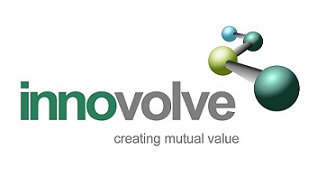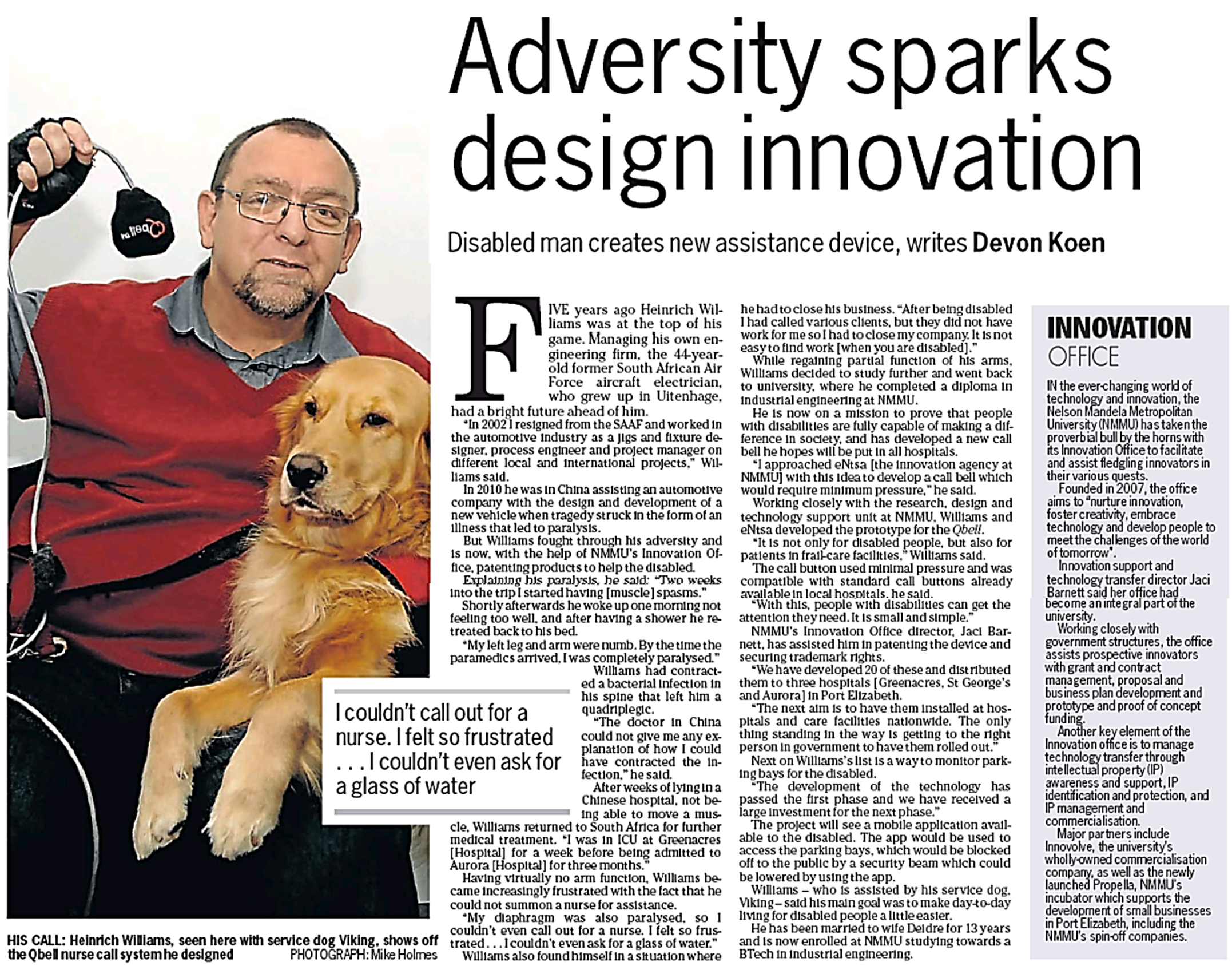Qbell featured in the Weekend Post
Heinrich Williams and his innovation Qbell was featured in the Weekend Post on 19 September.
Read the full extract of the Weekend Post article below:
Adversity sparks design innovation
Disabled man creates new assistance device, writes Devon Koen. I couldn’t call out for a nurse. I felt so frustrated… I couldn’t even ask for a glass of water.
FIVE years ago Heinrich Williams was at the top of his game. Managing his own engineering firm, the 44-yearold former South African Air Force aircraft electrician, who grew up in Uitenhage, had a bright future ahead of him. “In 2002 I resigned from the SAAF and worked in the automotive industry as a jigs and fixture designer, process engineer and project manager on different local and international projects,” Williams said.
In 2010 he was in China assisting an automotive company with the design and development of a new vehicle when tragedy struck in the form of an illness that led to paralysis.
But Williams fought through his adversity and is now, with the help of NMMU’s Innovation Office, patenting products to help the disabled.
Explaining his paralysis, he said: “Two weeks into the trip I started having [muscle] spasms.”
Shortly afterwards he woke up one morning not feeling too well, and after having a shower he retreated back to his bed.
“My left leg and arm were numb. By the time the paramedics arrived, I was completely paralysed.”
Williams had contracted a bacterial infection in his spine that left him a quadriplegic.
“The doctor in China could not give me any explanation of how I could have contracted the infection,” he said.
After weeks of lying in a Chinese hospital, not being able to move a muscle, Williams returned to South Africa for further medical treatment. “I was in ICU at Greenacres [Hospital] for a week before being admitted to Aurora [Hospital] for three months.”
Having virtually no arm function, Williams became increasingly frustrated with the fact that he could not summon a nurse for assistance.
“My diaphragm was also paralysed, so I couldn’t even call out for a nurse. I felt so frustrated . . . I couldn’t even ask for a glass of water.”
Williams also found himself in a situation where he had to close his business. “After being disabled I had called various clients, but they did not have work for me so I had to close my company. It is not easy to find work [when you are disabled].”
While regaining partial function of his arms, Williams decided to study further and went back to university, where he completed a diploma in industrial engineering at NMMU.
He is now on a mission to prove that people with disabilities are fully capable of making a difference in society, and has developed a new call bell he hopes will be put in all hospitals.
“I approached eNtsa [the innovation agency at NMMU] with this idea to develop a call bell which would require minimum pressure,” he said.
Working closely with the research, design and technology support unit at NMMU, Williams and eNtsa developed the prototype for the Qbell.
“It is not only for disabled people, but also for patients in frail-care facilities,” Williams said.
The call button used minimal pressure and was compatible with standard call buttons already available in local hospitals, he said.
“With this, people with disabilities can get the attention they need. It is small and simple.”
NMMU’s Innovation Office director, Jaci Barnett, has assisted him in patenting the device and securing trademark rights.
“We have developed 20 of these and distributed them to three hospitals [Greenacres, St George’s and Aurora] in Port Elizabeth.
“The next aim is to have them installed at hospitals and care facilities nationwide. The only thing standing in the way is getting to the right person in government to have them rolled out.”
Next on Williams’s list is a way to monitor parking bays for the disabled.
“The development of the technology has passed the first phase and we have received a large investment for the next phase.”
The project will see a mobile application available to the disabled. The app would be used to access the parking bays, which would be blocked off to the public by a security beam which could be lowered by using the app.
Williams – who is assisted by his service dog, Viking – said his main goal was to make day-to-day living for disabled people a little easier.
He has been married to wife Deidre for 13 years and is now enrolled at NMMU studying towards a BTech in industrial engineering.

